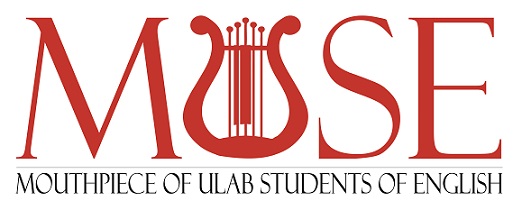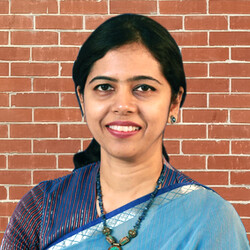By Abrar Farhan Zaman
MUSE is fortunate to present DEH’s beloved Assistant Professor Nadia Rahman’s interview, conducted by subeditor Abrar Farhan Zaman.
Q: You are doing your PhD on female anglophone writers who are breaking glass ceilings and making waves in literary circles abroad. Is their work being highlighted enough in Bangladesh? How would your research help in this regard?
It is very unfortunate that we, as Bangladeshis, are not researching our Anglophone writers. Even other researchers in the subcontinent are writing about Bangladeshi authors, but we are not. If you ask people around you, you will be surprised to know that none of them know that writers from Bangladesh are writing in English.
As I teach Research Methods, I try to promote research in this genre, but hardly find any student interested in doing that. It is simply because they are not taught this genre at their undergraduate or graduate level and hence feel less confident in testing the unfamiliar water. If we can include this genre in our syllabus, research interest can be developed.
So far, research on Bangladeshi Writings in English is few and on female authors very selective few have been done. My research focus is both on diasporic and non-diasporic authors that includes three generations of female authors which I believe will help readers in English to know the evolution of Anglophone women writing in Bangladesh, their narrative trajectory, the historical social reality portrayed by them and their discourse on national consciousness and cultural identity. It is high time that we make this genre a researchable area and I am hoping my research will generate that interest.
Q: You have occasionally forayed into creative writing. What inspired you to write the story “Dream Catcher” which was published in Star Literature?
I feel that I have to write about all these interesting people I met and am meeting in my life. My stories come from there. Being a woman, I have seen all my life how women around me repress their passion, desire to be what society tells them to be. Most of the young girls in our country abandon their dreams especially when the father dies. I wanted to explore that dream in a positive way.
Q. Do you see yourself as a creative writer? What advice would you give to aspiring writers at DEH?
Creative writing takes a lot of patience, revision, mediation and research. I have so many drafts and half-written stories which I plan to get back to when I finish my doctoral thesis (fingers crossed).
I am not an accomplished creative writer yet. With my limited experience, I can suggest researching themes, setting, and characters a bit before starting writing. Then write the ideas down as it comes and get back to them after some time to work on the narrative. Most importantly, do not give up on your stories.
Q: In your story “Silence” you explore how women have been silenced in myriad ways. Also, you have fostered women’s leadership as the project lead of World Academy for the Future of Women at ULAB. How can our female students prepare and equip themselves to attain leadership positions in an unequal world?
In Bangladesh, women are taught to be silent from their childhood. They are taught to be weak, submissive and dependent on men. Hence, they think education will only help them to become marriageable and later teach their children at home. They do not believe that they are a possibility or that they can be leaders too. World Academy for the Future of Women came to ULAB to give leadership training to female students only.
It is a one-year fabulous academy that aspires to make women global leaders with the excellent opportunity of building an international network with global leaders. Unfortunately, the academy had to stop its operation in Bangladesh due to the pandemic. We are hoping to bring it back very soon if the female students are interested.
Our female students need to realize that they are a possibility and nothing changes if they do not become the change. They have to break the gender boundary and make the conscious decision to become a leader. Education is a must. Take all the available skill training. The opportunities are there. They just have to avail it, believe in themselves and ignore what others will say.
Q: Previously, you have won the ULAB Vice Chancellor’s Excellence Award for service to the University community, and the ULAB Educator of the Month Award. How can one become a successful educator like you, who has positively influenced the lives of many students?
This is my 13th year at ULAB and I cannot think of working anywhere else. The university and DEH are a part of me. In these 13 years, I have worked in different capacities and was recognized for my contributions through these awards. I think as an educator, the only thing that mattered to me were my students and their academic well-being. I am very committed to my work but at the same time I show empathy where it is needed/required. A well-balance of these made me who I am today.
Q: Our theme for the upcoming issue of MUSE is Homage to Nature. In your opinion, how important is it to include discussions on nature in the curriculum?
Ecology/Ecocriticism is the buzz word in literary research nowadays as well as SD-based curriculum. Higher education ranking is decided on this category too. We have already included courses on ecocriticism in our new BA in English syllabus. The students have done a number of dissertations with this approach. I hope the discussion and research will continue from the students’ end.
Q: Would you say our ULAB community is doing enough to be sustainable and environment friendly? Is there any other change that you would like to see taking place in the future to make ULAB even greener?
I think ULAB is the first private university to make a green campus. Sustainability is one of the core values of the university which they have successfully accomplished in this new campus. The SD club has already taken some wonderful initiatives and celebrated Earth Day recently. Moreover, there is a special committee that oversees greening the campus. I have made my small contribution by donating home-grown saplings to ULAB. I am certain there will be more initiatives to make it greener.
Q. As one of the oldest members of the ULAB family, where would you like to see ULAB in the near future? Any suggestions for how we can get there?
Ah! You make me feel ancient…I see ULAB being the top ranked university of the country with its top quality faculty and excellent student services. We just need to continue the amazing work we are doing and we will be there very soon!
Q. My final question. Your students say they both love and fear you. I’m curious to know why they say this and who you really are as a person. What words of inspiration would you leave us with?
Hahaha! I know what they call me… I believe in quality student work. I do not give them an edge or compromise with that. I am also known for pushing students to their maximum capacity. I think they love and fear me for that. Despite being the iron lady, my students know that they can come to me in their deepest crisis and get the support/help that they need.
My last words – grow, believe in yourself, never give up, work hard and be empathetic to others.

